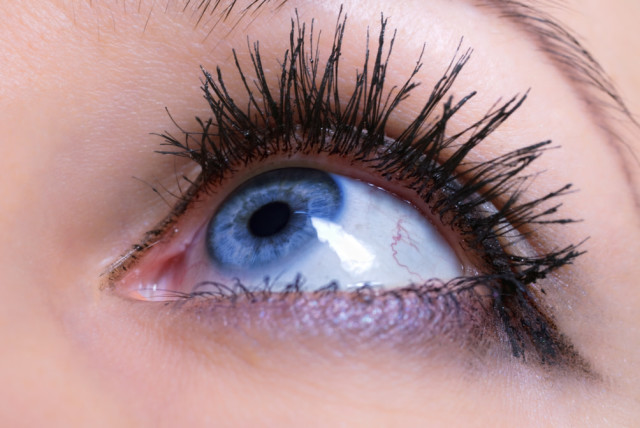How does prolonged darkness affect hostages' eyes?

The experience of prolonged darkness in captivity can have significant impacts on a person's eye health and overall well-being.
The treatment of hostages returning from Hamas's dark tunnels became more advanced as many were released in the recent deal.
Recently, people from the Health Ministry met with Yocheved Lifshitz, who was kidnapped from her home and released two weeks later. After the meeting, they recommended that individuals not be immediately exposed to light after being in a dark tunnel for an extended period of time.
Instead, they suggested providing sunglasses to help ease the transition. Even Ohad Mondar, a nine-year-old boy released in the first day, was seen wearing sunglasses while in the hospital. Prolonged darkness can be traumatic and have a profound effect on sleep patterns, mood, cognitive function, and hormone secretion.
Our bodies operate on a 24-hour cycle, and the sleep-wake mechanism is crucial for maintaining overall health. Natural light plays a vital role in this mechanism by helping to synchronize internal clock. Exposure to daylight signals the body to wake up, increases alertness, and initiates bodily movement.
Light also impacts the production of melatonin, the hormone responsible for promoting sleep. As natural light decreases in the evening, melatonin production increases, preparing the body for sleep. This is why exposure to screens emitting blue light late at night is not recommended, as it can disrupt sleep patterns.
What damage can prolonged darkness do to people?
Prolonged exposure to darkness can lead to various mental health issues, including depression, bipolar disorder, and seasonal affective disorder (SAD). It can also have physical health consequences, such as obesity, diabetes, cardiovascular diseases, muscle pain, fractures, skeletal problems, and joint diseases. Furthermore, cognitive function, including concentration, memory, and performance, can be negatively affected by a lack of exposure to natural light.
Our eyes perceive natural light through retinal cells, which transmit it to the optic nerve and, in turn, to the hypothalamus, the "superior hormonal headquarters" in the brain. When in the dark, our eyes begin the process of adaptation.
The pupil enlarges to allow more light to enter, and the protein rhodopsin inside the retina increases, enhancing our ability to see in low light conditions. However, extended periods of adaptation to night vision can lead to eye fatigue and fogginess.
Moreover, prolonged exposure to darkness can cause blurred vision, difficulty adjusting to light, and temporary difficulty identifying colors. Sensitivity to light may develop, necessitating the use of sunglasses upon re-entry into daylight. We can only hope for the swift return of all abductees from the darkness of Hamas captivity, allowing them to transition from darkness to light.
Jerusalem Post Store
`; document.getElementById("linkPremium").innerHTML = cont; var divWithLink = document.getElementById("premium-link"); if (divWithLink !== null && divWithLink !== 'undefined') { divWithLink.style.border = "solid 1px #cb0f3e"; divWithLink.style.textAlign = "center"; divWithLink.style.marginBottom = "15px"; divWithLink.style.marginTop = "15px"; divWithLink.style.width = "100%"; divWithLink.style.backgroundColor = "#122952"; divWithLink.style.color = "#ffffff"; divWithLink.style.lineHeight = "1.5"; } } (function (v, i) { });

